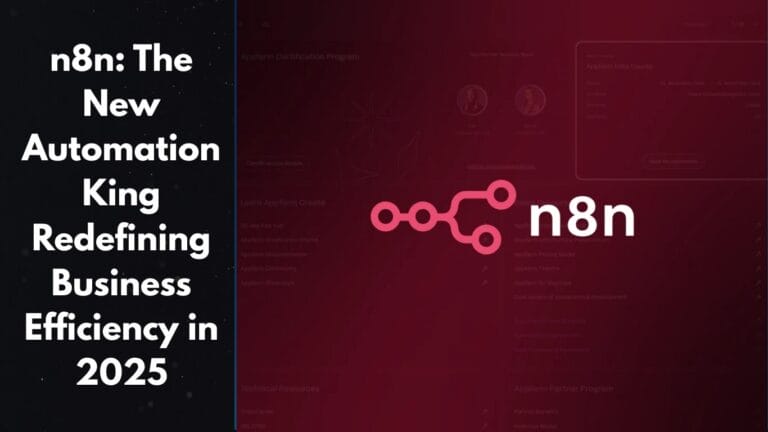ChatGPT is an AI model developed by OpenAI, designed to generate human-like text based on the input it receives. It stands for “Chat Generative Pre-trained Transformer.” Essentially, it’s a sophisticated language model that can understand and generate text in a conversational manner. ChatGPT is trained on a vast amount of text data and uses a deep learning architecture called Transformers to understand and generate responses to prompts or questions. It’s used in various applications, including chatbots, virtual assistants, content generation, and more, to simulate human-like conversation and provide useful responses to users.
The key features of ChatGPT include:
- Natural Language Understanding: ChatGPT has the ability to understand natural language input from users, allowing it to comprehend a wide range of questions, prompts, and conversational contexts.
- Contextual Responses: It generates responses based on the context of the conversation, taking into account the preceding dialogue to provide relevant and coherent answers.
- Conversational Flow: ChatGPT maintains a conversational flow by responding contextually to the user’s queries, enabling fluid and engaging interactions similar to human conversation.
- Multimodal Inputs: It can process various types of inputs, including text, images, and audio, to provide more versatile and interactive responses.
- Adaptability: ChatGPT can adapt its responses based on user feedback and the evolving context of the conversation, improving its performance over time.
- Extensibility: Developers can fine-tune ChatGPT or integrate additional modules to enhance its capabilities and customize its behavior for specific applications or use cases.
- Ethical Considerations: ChatGPT incorporates safeguards to promote ethical use, such as filtering out inappropriate content and avoiding biased or harmful responses.
- Multi-Turn Dialogue: It supports multi-turn dialogue, allowing users to engage in extended conversations with ChatGPT and maintain continuity across multiple interactions.

Table of Contents
How does ChatGPT work?
ChatGPT is based on a deep learning architecture called Transformers, which processes input text and generates output text using a sequence-to-sequence approach. It’s pre-trained on a large dataset of text from the internet and fine-tuned for specific tasks or applications.
What can I use ChatGPT for?
ChatGPT can be used for a variety of applications, including chatbots, virtual assistants, content generation, language translation, and more. It’s versatile and adaptable, making it suitable for a wide range of natural language processing tasks.
Is ChatGPT capable of understanding context?
Yes, ChatGPT is designed to understand context and generate responses that are appropriate based on the preceding dialogue. It maintains a conversational flow by considering the context of the conversation and providing relevant answers.
Can ChatGPT generate responses in multiple languages?
While ChatGPT is primarily trained on English text, it can generate responses in multiple languages with varying degrees of proficiency. There are also versions of ChatGPT trained specifically for other languages, such as Chinese, Spanish, and French.
How accurate is ChatGPT?
The accuracy of ChatGPT depends on various factors, including the quality of the training data, the complexity of the task, and the specific version of the model being used. Generally, ChatGPT performs well in generating coherent and contextually relevant responses, but it may occasionally produce errors or nonsensical output.
Is ChatGPT biased?
ChatGPT strives to be unbiased and impartial in its responses, but like any AI model, it may reflect biases present in the training data. OpenAI takes measures to mitigate bias in ChatGPT by carefully curating and filtering the training data and implementing fairness and transparency guidelines.
Can ChatGPT be used for malicious purposes?
While ChatGPT is primarily intended for positive and productive applications, there is potential for misuse by individuals or organizations seeking to generate harmful or misleading content. OpenAI encourages responsible use of ChatGPT and provides guidelines for ethical deployment to mitigate potential risks.
Also Read ➤ ➤ 115+ ChatGPT Prompts for Google Ads | Try NOW!
Imagine you’re working on a college research paper. You’ve got tons of information to sift through, ideas to organize, and arguments to articulate. Sometimes, it can be overwhelming, especially if you’re stuck on a particular section or need help expressing your thoughts clearly.
This is where ChatGPT can be incredibly useful. It’s like having a knowledgeable friend who’s always there to assist you with your paper. You can ask ChatGPT for suggestions on structuring your paper, finding relevant sources, or even generating ideas for your thesis statement.
Additionally, if you’re struggling to articulate a particular concept or need help paraphrasing a complex idea, ChatGPT can provide guidance. It can explain concepts in simpler terms, offer examples, or even help you rephrase sentences to improve clarity.
Overall, ChatGPT can serve as a valuable resource throughout the research and writing process, helping you overcome obstacles, refine your arguments, and ultimately, produce a stronger and more polished research paper.
The Main Agenda – ChatGPT Prompts for College Research Papers
Topic Exploration
- “Can you suggest research topics related to environmental science?”
- “I need ideas for a thesis statement on gender inequality in the workplace.”
- “What are some current debates in psychology that would make for a good research paper?”
Also Read ➤ ➤ 30+ ChatGPT Prompts for LinkedIn Posts | Try NOW!
Thesis Development
- “How can I refine my thesis statement to make it more focused?”
- “Can you help me craft a thesis statement that takes a clear stance on the issue?”
- “What are the key components of a strong thesis statement?”
Research Planning
- “Where can I find reliable sources for my research paper on artificial intelligence?”
- “Can you recommend databases or journals for finding scholarly articles on my topic?”
- “How do I evaluate the credibility of sources I find online?”
Literature Review
- “I need help summarizing and synthesizing the main findings of these research articles.”
- “What are the common themes or trends emerging from the literature on this topic?”
- “How can I organize my literature review to present a coherent argument?”
Also Read ➤ ➤ 80+ ChatGPT Prompts for Project Managers | DIVE NOW!
Writing Structure
- “Can you suggest an outline for structuring my research paper?”
- “What should I include in the introduction to grab the reader’s attention?”
- “How can I effectively transition between sections of my paper?”
Citation and Referencing
- “What citation style should I use for my research paper in sociology?”
- “How do I cite sources properly to avoid plagiarism?”
- “Can you help me format my bibliography according to APA guidelines?”
Revision and Editing
- “I need feedback on the clarity and coherence of my argument in this paragraph.”
- “What strategies can I use to improve the flow of my writing?”
- “How do I strengthen the conclusion of my research paper?”
Also Read ➤ ➤ 80+ ChatGPT Prompts for Facebook Ads | USE NOW!
Grammar and Language
- “Can you identify any grammatical errors or awkward phrasing in this sentence?”
- “How can I vary my sentence structure to make my writing more engaging?”
- “What are some common punctuation mistakes I should watch out for?”
Formatting and Presentation
- “How should I format the headings and subheadings in my research paper?”
- “What font size and spacing are appropriate for academic papers?”
- “Can you provide tips for creating visually appealing tables and figures?”
Peer Review and Feedback
- “Would you mind reviewing my research paper and providing constructive feedback?”
- “What are some questions I can ask my peers to get helpful feedback on my paper?”
- “How do I incorporate feedback from my professor into my revised draft?”
Also Read ➤ ➤ 87+ ChatGPT Prompts for Thesis Writing | Write NOW!
Conclusion
ChatGPT offers invaluable support for college students navigating the complexities of research paper writing. Its ability to understand natural language and provide contextual responses makes it a versatile tool throughout the research process. From brainstorming topics to refining arguments and polishing drafts, ChatGPT serves as a knowledgeable assistant, offering guidance, suggestions, and feedback at every stage.
By leveraging ChatGPT’s capabilities, students can streamline their research process, improve the clarity and coherence of their writing, and ultimately, produce stronger and more impactful research papers. With ChatGPT’s assistance, students can overcome obstacles, refine their ideas, and confidently articulate their findings, ensuring that their research papers meet the highest standards of academic excellence.
In conclusion, ChatGPT empowers college students to succeed in their research endeavors, providing the support and guidance they need to excel in their academic pursuits. Whether it’s crafting a thesis statement, conducting literature reviews, or revising drafts, ChatGPT is a valuable resource that enhances the research and writing experience for students across disciplines.










